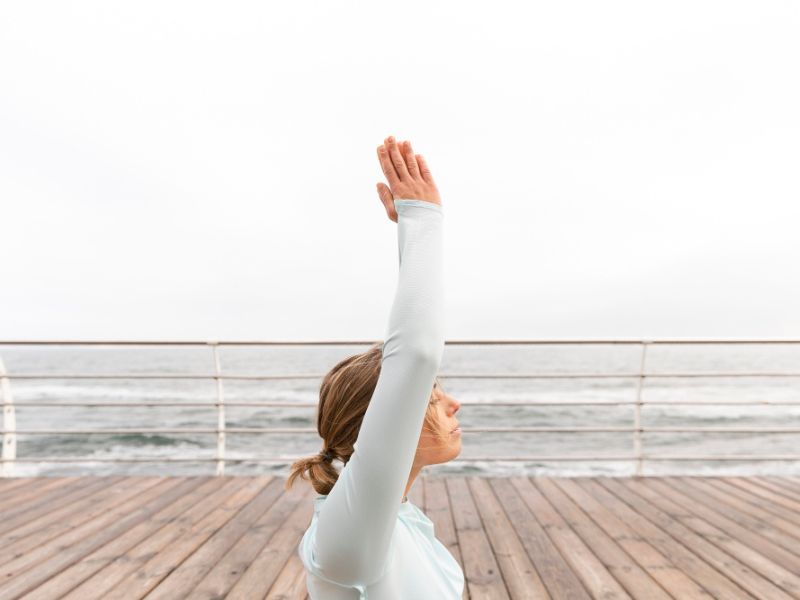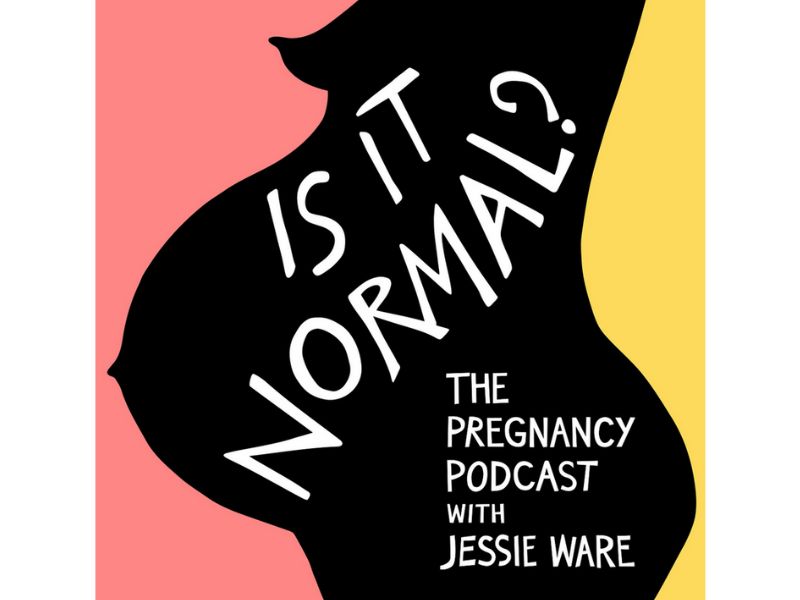By Jessica Forster
Something I hear a lot when I first start working with people is “I feel like I’m sleeping well, but I’m still always tired”. While sleep is undoubtedly crucial for your well-being, there’s much more to the concept of rest than meets the eye.
There are 7 types of rest; physical, mental, emotional, social, sensory, creative and spiritual. It’s incredibly difficult to go about your day, focus and work hard when your batteries are drained. Without a comprehensive approach to rest, you may be facing chronic exhaustion. You deserve to start each day feeling replenished and there are many roads of self-care towards reaching that feeling.
Physical rest
When we talk about resting and recharging, we often think of physical rest in the form of sleep. However, it extends beyond bedtime. For regular gym-goers, this can involve giving your body a break from intense physical activity, allowing your muscles and joints to recover. Physical rest is crucial for injury prevention and optimal performance.
Those with a less active lifestyle also need plenty of physical rest. It’s easy to underestimate your physical rest needs when you feel like you’ve not done much but it’s still essential. For example, if you spend long periods sitting in the same position from commuting and desk work, then it’s about giving your joints and muscles some relief. Light stretching and releasing tension are key to avoiding repetitive muscle strain and joint pain. Regardless of your daily activity level, make sure to prioritise your sleep, take breaks for stretching, have recovery days from exercise and indulge in some physical relaxation like a warm bath or massage. Your body is worthy of some love and care.
Mental rest
Our lives are often ruled by persistent deadlines, multitasking, problem-solving, access to unlimited entertainment and the ability to communicate with anyone at any time. This leads to relentless mental stimulation and makes a quiet mind a precious commodity. Ever feel like your train of thought is more of a train crash? That’s probably because your brain is feeling far too overloaded. Even without realising it, you can be constantly switched on and working hard without moving a muscle. Mental rest is quieting the incessant chatter of your mind and allowing yourself to just exist in the moment. It’s about taking breaks from always being “on task”, clearing your mental clutter, and finding stillness. Allow yourself to just be; take a break to exist without pressure or responsibilities.
Meditation, mindfulness, and deep-breathing exercises can be excellent paths to achieving mental rest. Gift yourself the much-deserved and needed time where your internal to-do list doesn’t apply. No matter how busy you get, treat mental rest as a non-negotiable. By allowing your mind to recharge, you can enhance your focus, creativity, and problem-solving abilities and it will do wonders for your health.
Emotional rest
Emotional rest is all about tending to your feelings. Life is stressful and often an emotional rollercoaster. If you don’t take the time to sit with your feelings to process them fully, then they will explode in unexpected ways. No matter how hard you try, they won’t be ignored. Talking therapy is a great outlet for unpacking experiences and how you feel about them. This isn’t always accessible to everyone but a great alternative can be pursued through community, such as opening up to friends or sharing in support groups. Try to find a space where you can unapologetically express and feel however you need to.
For some, it is easier to be open and more in touch with their feelings when done as a solitary activity. Mindfulness, journaling and self-talk can be used to unlock what is going on under the surface and give space to what needs to be processed. If you’re struggling to find the words, it can help to experiment with non-verbal emotional release techniques. Embrace the tears, scream into a pillow or allow yourself to shake all parts of your body for some somatic release. Whatever it takes to stop your emotions from staying pent up in your body.
However is right for you, you must allow yourself to process your feelings and find an emotional equilibrium instead of pushing everything down. Remember that your emotional well-being is as important as your physical health. If you had just run a marathon then you would obviously need to allow your body to recover and reset, the same goes for periods of intense emotions.
Social rest
Social rest involves taking a step back from social interactions when needed. As social beings, we thrive on connections, but sometimes, we must allow ourselves to recharge by spending time alone. Take the time to check in with your internal social battery to be aware of when you’ve reached your limits. Maybe you’re feeling extra irritable around people or getting ready to go out and meet friends is feeling especially tiresome. Your emotions and body will give you signs if you need some “me time”, try to listen and give yourself some deserved solitude before you reach social burnout.
If you know you need some alone time to recharge then stick to your boundaries. Well-meaning loved ones may try to push you into socialising when it doesn’t feel right for you. Even when comfortable, many still struggle to unmask fully around others and no matter how much fun they have gone out, it still costs them considerable energy. You aren’t selfish or rude for standing your ground and declining, it’s a sign of strength and self-love. Those who truly care for your well-being will respect that. Take the time to reflect, regroup and rejuvenate so that you can fully enjoy the time you choose to spend with your loved ones.
Sensory rest
Our senses are relentlessly bombarded by a barrage of stimuli in our modern world. When your brain is trying to endlessly perceive and interpret overloading sensory information, then you’re never truly peaceful enough to be recharging. Even if it feels like you’re doing nothing when you’re mindlessly scrolling or watching TV, it will still be costing your mind energy and distracting you from relaxation. If everyday noises that usually don’t bother you are feeling like nails down a chalkboard, you’re probably overstimulated.
It’s important to give yourself a break from the incessant noise, lights, and input. Sensory rest can help you become more present and reduce stress. Try unplugging from your devices for a while and spending time in nature. Even taking any opportunities for a few minutes in a quiet, dark room to be still, free from stimuli and practising mindfulness can give you a wonderful respite from the continual noise of your day.
Creative rest
In our quest for productivity, we often assign value to what is practical and essential, thus overlooking the importance of pressure-free creative rest. It involves stepping away from work or responsibilities to let your imagination breathe. Engage in hobbies that inspire you and don’t require intense focus or deadlines.
Experiment with different outlets and allow yourself to play to see what sparks a light in you. Creativity can manifest in drawing, gardening, cooking, music, writing, dancing or anything you allow yourself to explore just for the joy of it. Sometimes a fun place to start is what you enjoyed most as a child. Let this time be about self-expression instead of being the best or doing things perfectly. Creative rest can reignite your passion for life and try new things.
Spiritual rest
Spiritual rest is about nurturing your inner self and connecting with your beliefs and values. It doesn’t necessarily involve religion or spirituality. If those things are important in your life then prayer or meditation are great practices to fuel that part of you. But spiritual rest is important for everyone regardless of beliefs.
Take time for self-reflection, discover your key values in life and engage in activities that are in line with what matters to you. If you feel drawn to helping others, then dedicate some time to volunteering or charity work. If you’re passionate about expanding your knowledge and worldview, then time for learning and studying that is separate from your work or formal education can be a restorative activity. Finding meaning and purpose in your life can provide a profound sense of peace and fulfilment.
Tending to 7 different types of rest may feel intimidating, but try to approach it as a beautiful opportunity. There are so many different ways that you can explore to replenish yourself and feel better. Remember, self-care is not selfish or something to be earned; it’s crucial for a healthier, more balanced, and fulfilled life. It’s as essential a fuel to your body as food or water. Take it one step at a time and find what works for you.
About the author
 Jessica Forster is a Holistic Health & Wellness Specialist and Founder of Empowered Health Education. As a licensed yoga teacher with qualifications ranging across nutrition, physical training, mental health and hormone management, Jessica works with her clients to map out and execute a balanced health plan that addresses the full picture. She is dedicated to empowering individuals to take control of their own well-being through education, support and personalised guidance. She specialises in providing a practical, realistic and compassionate approach to health, with an emphasis on understanding and supporting the different needs of an individual, instead of a one-size-fits-all mindset.
Jessica Forster is a Holistic Health & Wellness Specialist and Founder of Empowered Health Education. As a licensed yoga teacher with qualifications ranging across nutrition, physical training, mental health and hormone management, Jessica works with her clients to map out and execute a balanced health plan that addresses the full picture. She is dedicated to empowering individuals to take control of their own well-being through education, support and personalised guidance. She specialises in providing a practical, realistic and compassionate approach to health, with an emphasis on understanding and supporting the different needs of an individual, instead of a one-size-fits-all mindset.
Connect with Jessica:









